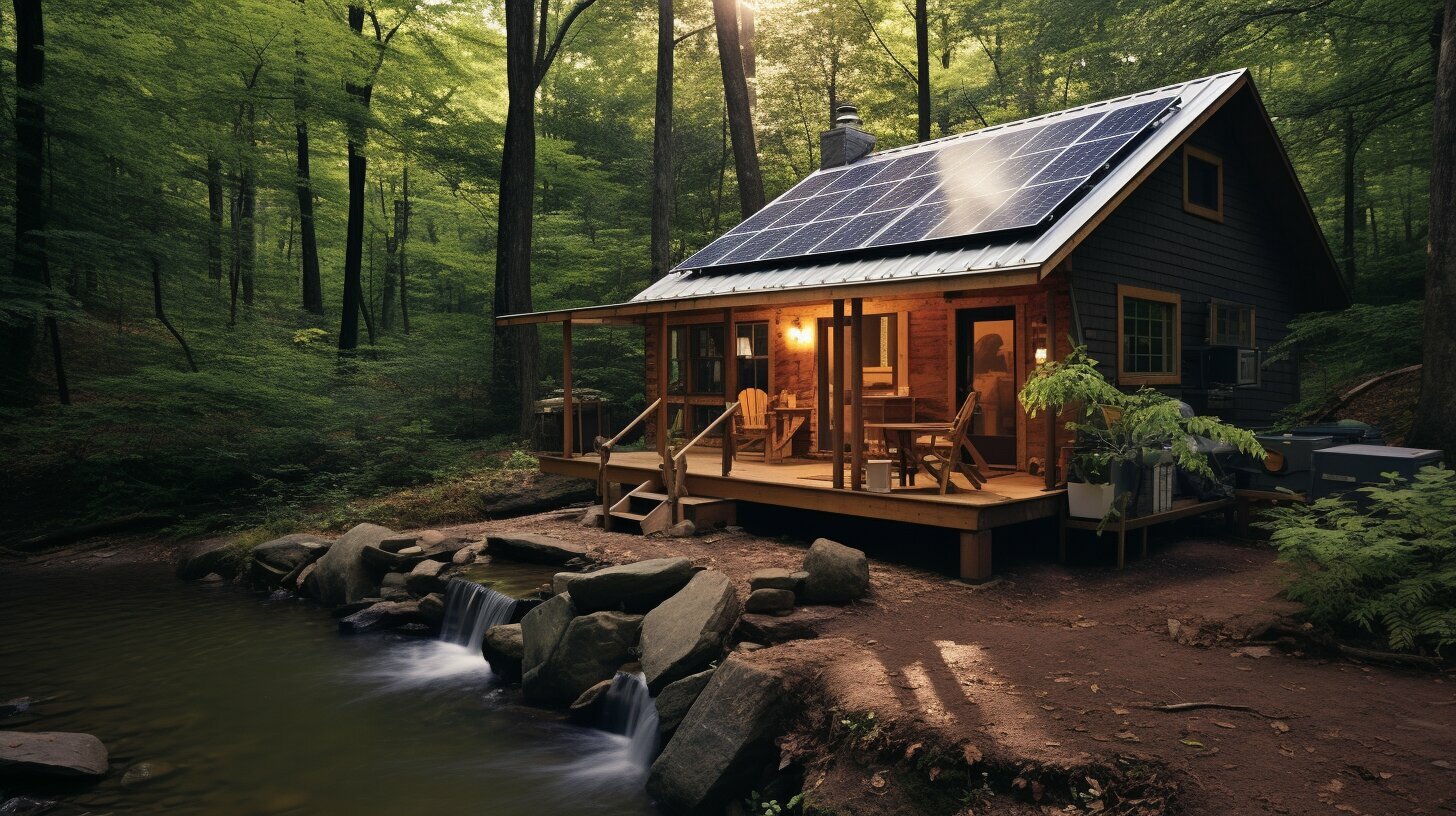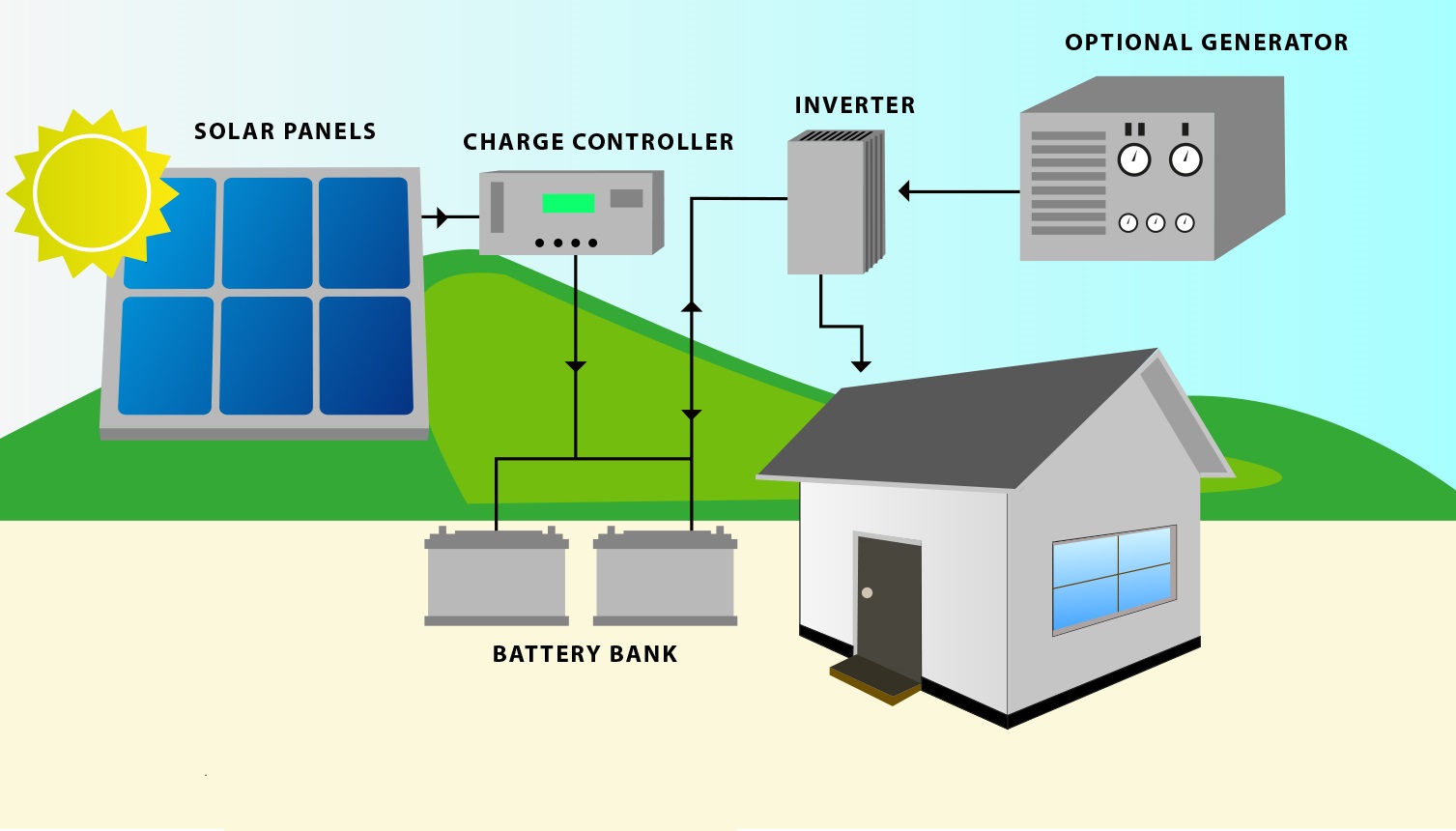Off grid living grants: Imagine a life unbound by the constraints of the grid, a life powered by nature’s rhythm, a life deeply connected to the earth. This isn’t just a dream; it’s a growing movement, and with the right funding, it can be your reality. This comprehensive guide unveils the secrets to securing off-grid living grants, transforming your vision into a tangible, sustainable lifestyle.
We’ll explore the diverse landscape of grant opportunities, guiding you through the application process, budgeting strategies, and the crucial legal considerations. Learn how to craft a compelling grant proposal, highlighting the environmental and social benefits of your off-grid project. Discover inspiring examples of successful off-grid communities, and gain the knowledge to navigate the path toward self-sufficiency and a harmonious relationship with nature.
Understanding Off-Grid Living Grants
Embarking on an off-grid lifestyle is a significant undertaking, requiring careful planning and substantial financial investment. Fortunately, various grant programs exist to support individuals and communities striving for self-sufficiency and environmental sustainability through off-grid living. Understanding these grants, their eligibility criteria, and the successful projects they’ve funded is crucial for anyone considering this path.
Types of Off-Grid Living Grants
Several types of grants cater to different aspects of off-grid living. Some focus on renewable energy systems (solar, wind, hydro), while others prioritize water harvesting and conservation techniques. Still others support the construction of sustainable housing, permaculture projects, or the development of off-grid community infrastructure. The specific focus of a grant will significantly influence the type of project it can fund.
Many grants are highly specialized, targeting specific geographical areas or demographic groups.
When investigating detailed guidance, check out sweden off grid living now.
Eligibility Criteria for Off-Grid Living Grant Programs
Eligibility criteria vary widely depending on the granting organization and the specific grant program. Common requirements include demonstrating a genuine commitment to off-grid living, outlining a detailed and feasible project plan, providing evidence of financial need, and potentially meeting specific environmental or social impact goals. Some grants prioritize projects that benefit underserved communities or contribute to environmental conservation efforts.
Applicants should carefully review the specific eligibility requirements of each grant program before submitting an application. This often includes demonstrating a strong understanding of sustainable practices and long-term project sustainability.
Examples of Successful Off-Grid Living Projects Funded by Grants
Numerous successful off-grid projects have benefited from grant funding. For example, a community in rural Montana secured a grant to install a shared solar array and water purification system, enhancing their energy independence and access to clean water. Another successful project involved a family in Oregon receiving funding to construct a passive solar home using locally sourced, sustainable materials, reducing their environmental impact and creating a comfortable, energy-efficient living space.
A permaculture project in Appalachia, funded through a grant, transformed degraded land into a thriving ecosystem providing food and resources for the local community. These examples highlight the transformative potential of grant funding in supporting sustainable and resilient off-grid living.
Comparison of Off-Grid Living Grant Programs
| Grant Program | Funding Amount | Application Deadline | Eligibility Requirements |
|---|---|---|---|
| Example Grant A (Hypothetical) | $5,000 – $25,000 | December 31st, annually | US resident, detailed project proposal, environmental impact assessment |
| Example Grant B (Hypothetical) | $10,000 – $50,000 | March 15th, annually | Rural location, focus on renewable energy, community benefit |
| Example Grant C (Hypothetical) | $2,000 – $10,000 | June 30th, annually | Low-income household, sustainable housing project, demonstrated need |
| Example Grant D (Hypothetical) | $1,000 – $5,000 | September 1st, annually | Focus on water conservation, detailed budget, project timeline |
Finding and Applying for Off-Grid Living Grants

Embarking on an off-grid journey often involves significant financial investment. Fortunately, various organizations and government agencies recognize the value of sustainable living and offer grants to support individuals and communities in achieving their off-grid dreams. Securing funding requires a well-crafted application that showcases the project’s viability and impact. This section guides you through the process of identifying funding opportunities, crafting a compelling proposal, and successfully navigating the application process.
Reputable Organizations and Government Agencies Offering Off-Grid Living Grants
Numerous organizations, both public and private, offer grants specifically tailored to off-grid projects or those aligned with broader sustainability goals. Researching these opportunities is crucial. Government agencies often prioritize projects with demonstrable community benefits, such as improved energy independence or reduced environmental impact. Private foundations may focus on specific areas, like water conservation or renewable energy. A thorough online search using s like “off-grid grants,” “sustainable living grants,” and “renewable energy grants,” combined with exploring the websites of relevant organizations, is a good starting point.
Examples include regional and state energy offices, environmental protection agencies, and foundations focused on rural development or sustainable agriculture.
Crafting a Compelling Grant Proposal for Off-Grid Living Projects
A successful grant proposal clearly articulates the project’s goals, methodology, and anticipated impact. It should be well-written, concise, and persuasive. Begin with a strong executive summary that highlights the project’s essence and its alignment with the grantor’s priorities. Clearly define the project’s objectives, outlining measurable outcomes. Detail the proposed methods, including specific technologies and techniques to be employed.
Crucially, demonstrate a deep understanding of the challenges involved and how your project will overcome them. Highlight the project’s long-term sustainability and its potential for replication or wider impact. Include compelling visuals, such as diagrams or sketches, to illustrate your project. Finally, emphasize the community benefits, if applicable, to strengthen your application.
The Importance of a Strong Budget and Project Timeline
A detailed and realistic budget is paramount. It demonstrates your financial planning skills and the project’s feasibility. Itemize all expenses, including materials, labor, permits, and contingency funds. Justify each expense, explaining why it’s necessary and how it contributes to the project’s success. A clear and achievable timeline is equally critical.
It shows the grantor that you have a well-defined plan and can manage the project effectively. Break down the project into manageable phases, with specific milestones and deadlines. This demonstrates your organizational skills and ability to meet commitments. A Gantt chart can visually represent the project timeline, illustrating the interdependence of different tasks.
Submitting a Grant Application and Following Up, Off grid living grants
Once the proposal is finalized, carefully review it for errors and omissions before submission. Adhere strictly to the grantor’s guidelines regarding formatting, submission methods, and deadlines. After submitting the application, maintain a record of the submission and any communication with the grantor. Following up appropriately is crucial. A polite inquiry after a reasonable period can demonstrate your continued interest and commitment to the project.
Be prepared to answer any questions the grantor may have. Maintain professional and courteous communication throughout the process. Remember, persistence and clear communication significantly increase your chances of success.
Legal and Regulatory Aspects of Off-Grid Living: Off Grid Living Grants
Embarking on the journey of off-grid living requires careful consideration of the legal landscape. Navigating the complex web of regulations is crucial for ensuring a smooth and sustainable transition to a self-sufficient lifestyle. Failure to comply with local, state, and sometimes federal laws can lead to significant setbacks, including fines, legal battles, and even the forced dismantling of your off-grid project.
Understanding these regulations is not just about avoiding penalties; it’s about building a secure and legally sound foundation for your off-grid dream.
Potential Legal Challenges in Off-Grid Living
Off-grid living presents a unique set of legal challenges that differ significantly from traditional residential living. These challenges often stem from zoning regulations, building codes, environmental protection laws, and property rights. For example, local ordinances may restrict the construction of dwellings outside designated building zones, limiting the available land for off-grid settlements. Furthermore, restrictions on water usage, waste disposal, and the generation of renewable energy can pose significant hurdles.
Understanding these specific limitations is paramount before committing to a particular location. These restrictions vary significantly depending on geographic location and local government policies. A thorough review of local ordinances is crucial before beginning any off-grid construction project.
Building Codes and Regulations for Off-Grid Construction
Building codes and regulations are designed to ensure the safety and structural integrity of buildings, regardless of their location or energy source. While the specific requirements vary by jurisdiction, many off-grid projects still need to comply with fundamental standards relating to fire safety, structural stability, sanitation, and electrical safety. For instance, even a small cabin built off-grid must adhere to local building codes concerning insulation, electrical wiring, and plumbing.
This often necessitates obtaining permits and inspections, adding another layer to the planning process. Failing to meet these standards can result in fines, building condemnation, and even legal action. It is crucial to research and understand the applicable building codes before commencing construction.
Obtaining Necessary Permits and Licenses for Off-Grid Projects
Securing the necessary permits and licenses is a critical step in any off-grid project. This process typically involves submitting detailed plans and specifications to the relevant authorities for review and approval. The types of permits required can vary depending on the scale and nature of the project, encompassing building permits, septic permits, well permits, and potentially others depending on the specific location and the planned activities.
Delays in obtaining these permits can significantly prolong the project timeline, while failure to obtain necessary permits can lead to legal repercussions. Proactive engagement with local authorities is key to a smooth permitting process. Detailed and accurate documentation is essential for a successful application.
Successful Navigation of Legal Hurdles in Off-Grid Living Projects
Successful off-grid projects demonstrate the possibility of navigating legal complexities with thorough planning and proactive engagement. For instance, some individuals have successfully obtained variances or exceptions to zoning regulations by demonstrating the environmental benefits of their off-grid lifestyle, such as reduced carbon footprint and water conservation. Others have engaged with local officials early in the planning process, fostering collaborative relationships that facilitated permit approvals.
Working closely with legal professionals specializing in land use and environmental law can provide invaluable guidance in navigating these complexities. These examples highlight the importance of thorough research, proactive communication, and a willingness to work within the existing legal framework.
Embarking on an off-grid journey is a transformative experience, a testament to human ingenuity and our connection to the natural world. Securing funding through off-grid living grants is the key that unlocks this possibility. By understanding the various grant programs, mastering the art of proposal writing, and meticulously planning your project, you can pave the way for a sustainable, fulfilling, and independent lifestyle.
The path may be challenging, but the rewards—a life lived on your own terms, in harmony with nature—are immeasurable. Take the leap, and let your off-grid dream become a reality.



